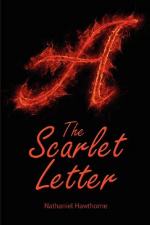It is inconceivable, the agony with which this public veneration tortured him. It was his genuine impulse to adore the truth, and to reckon all things shadow-like, and utterly devoid of weight or value, that had not its divine essence as the life within their life. Then what was he?—a substance?—or the dimmest of all shadows? He longed to speak out from his own pulpit at the full height of his voice, and tell the people what he was. “I, whom you behold in these black garments of the priesthood—I, who ascend the sacred desk, and turn my pale face heavenward, taking upon myself to hold communion in your behalf with the Most High Omniscience—I, in whose daily life you discern the sanctity of Enoch—I, whose footsteps, as you suppose, leave a gleam along my earthly track, whereby the Pilgrims that shall come after me may be guided to the regions of the blest—I, who have laid the hand of baptism upon your children—I, who have breathed the parting prayer over your dying friends, to whom the Amen sounded faintly from a world which they had quitted—I, your pastor, whom you so reverence and trust, am utterly a pollution and a lie!”
More than once, Mr. Dimmesdale had gone into the pulpit, with a purpose never to come down its steps until he should have spoken words like the above. More than once he had cleared his throat, and drawn in the long, deep, and tremulous breath, which, when sent forth again, would come burdened with the black secret of his soul. More than once—nay, more than a hundred times—he had actually spoken! Spoken! But how? He had told his hearers that he was altogether vile, a viler companion of the vilest, the worst of sinners, an abomination, a thing of unimaginable iniquity, and that the only wonder was that they did not see his wretched body shrivelled up before their eyes by the burning wrath of the Almighty! Could there be plainer speech




